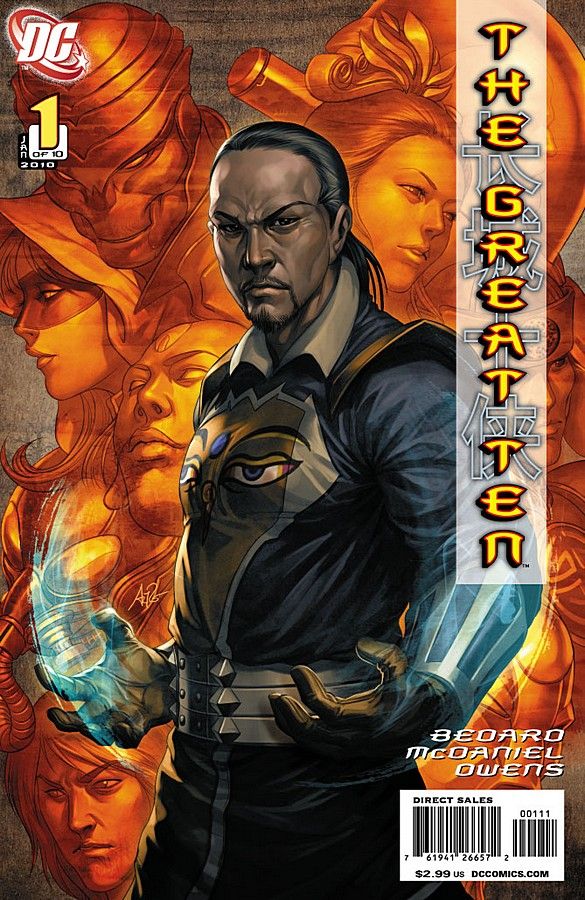Nothing like striking while the iron is hot, eh? Only three years after their debut in "52" and a month after the "Final Crisis Aftermath" minis made use of subsequent Grant Morrison-created properties/ideas, the Great Ten finally get their own ten-issue mini-series. While the delay makes the arrival of this first issue come with little fanfare, the quality is high and does the property justice as Tony Bedard jumps right in, tackling the inner turmoil of China and its place in the world as filtered through its premiere superhero team.
This issue centers on Yao Fei, the Great Ten's Accomplished Perfect Physician, as the Great Ten's latest mission in Tibet to quell a 'riot' mirrors a similar encounter Yao had 12 years previously when he was a member of the People's Liberation Army. The young Yao fled after killing a man, unwilling to open fire on unarmed civilians and was shot in the process. Taken in by an elderly woman, he learns that the man he killed was meant to be the seventeenth incarnation of the Accomplished Perfect Physician and, now, that burden was his to carry.
In the present, Yao is sent to Tibet with three other members of the Great Ten, very unhappy about the mission and barely participates as a result. His role is not to kill innocents, he argues. Throughout this, we also see flashbacks to his career as Accomplished Perfect Physician as he and the then August Captain in Iron were arch-enemies, Yao a deserter and enemy of the state. The two still carry animosity toward one another, giving the group an interesting dynamic since these are the two members readers are most familiar with.
By addressing China's actions in Tibet and building the series up around the idea of what China was prior to the rise of communism, Bedard takes what could have been a simplistic and narrow-minded series and gives it depth. He also adds scathing commentary as the rest of the world reacts to this latest military action in Tibet in ways that should surprise us, but are too common. Though, there isn't much of this as Bedard sticks closer to the characters, making what little we see not quite enough.
The weakest part of this comic is Scott McDaniel's art, which looks rushed and incomplete in many spots. His thick, broad lines provide little room for nuance or detail, giving the book a far more cartoonish look than the script calls for. Scenes of the Great Ten or the military slaughtering innocents lack that visceral punch that's needed. His layouts are strong, but the actual drawings drag the issue down.
Despite the art, "The Great Ten" #1 is a strong start to this series as Bedard sets the stage for a conflict between the China of old and the China of the twentieth and twenty-first centuries with a split within to the Great Ten itself to mark the conflict. The issue ends on a strong note, introducing a new enemy that could give the Great Ten considerable problems. It may be a few years late, but the Great Ten's series is a winner.

